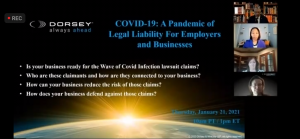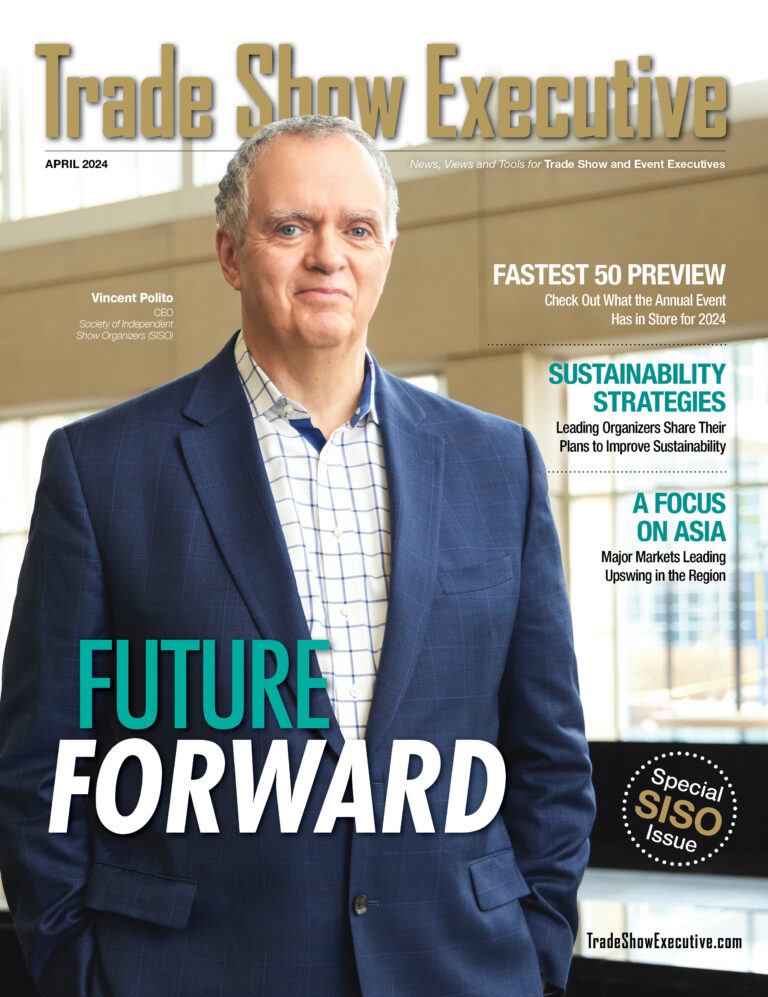 DALLAS — There’s a lot that trade show organizers can learn about potential COVID-19 liability from the legal challenges companies are facing from their employees and patrons. Four attorneys from the legal firm Dorsey shared their recent experiences, along with some excellent advice, during a January 21 webinar — with the caveat that, like the virus, COVID 19 law is always evolving.
DALLAS — There’s a lot that trade show organizers can learn about potential COVID-19 liability from the legal challenges companies are facing from their employees and patrons. Four attorneys from the legal firm Dorsey shared their recent experiences, along with some excellent advice, during a January 21 webinar — with the caveat that, like the virus, COVID 19 law is always evolving.
Much depends on the state you are in, said Shevoa D. Rockett, a partner in Dorsey’s New York City and Philadelphia offices. “Some states have adopted their own liability shield specific to COVID, and they vary tremendously. Some require physician certification that the patient contracted COVID at a specific business and they must show a judge that the business did not take precautions. It varies from state to state.”
The most common lawsuits right now are those claiming that companies were not performing their due diligence by providing employees with personal protective equipment, or not following CDC guidelines — a claim that could easily translate to a trade show organizer or event venue. It’s imperative to become familiar with federal, state and local governmental web sites, where orders and other safety notifications related to your business can be found. Follow your industry associations, who are also interpreting the latest news. The partners suggest assigning one member of management to monitor these sites daily.
Related. Safety: Key to Reopening Trade Shows
“This is not a do-it-yourself situation,” said Douglas S. Lang, Office Counsel, based in the firm‘s Dallas office. “You need to be able to prove that your company took reasonable steps to keep people safe.” It’s also important to clearly communicate both the safety precautions you are taking and the steps that employees, patrons — and meeting attendees — must take.
Precautions such as posting guidelines to stay home if sick, socially distance and wear a mask, and actions such as taking temperatures on site, are fast becoming best practices. These must be enforced to ensure that an organization is protected if there is a lawsuit. The partners suggest creating checklists detailing each safety measure your business is taking, and to maintain these records for at least two years.
Causation is as important as due diligence, said Rockett, “It is difficult to pinpoint when you were exposed or infected. A plaintiff will have to show they were exposed at your particular event, which is hard to do if he or she also took public transportation to get there, for example.”
“The big question is if there is a preponderance of evidence that it was more likely than not that the negligence of the business caused the infection,” said Young. “The answer is simply yes or no.”
Additional Resources











